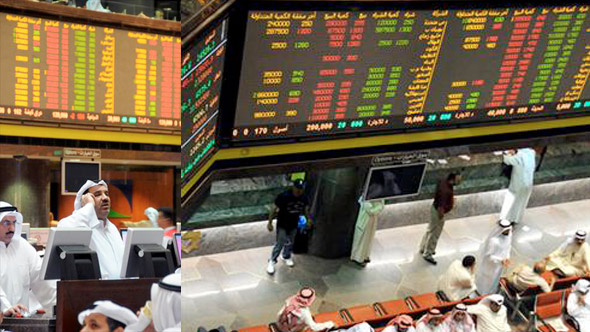Kuwait: Analysis of Financial Markets
In 2012, the Kuwait banks are cleaning up their balance sheets as a response to the consequences of the financial crisis of 2008/09 that is most likely going to continue throughout 2012.

The Capital Market Authority in Kuwait created through a bill approved by the Kuwaiti parliament in February 2010 is on the right track but will require time to implement the laws and regulations that aim at regulating securities activities in a fair, competitive and transparent manner, protecting investors and implementing a policy of full disclosure so as to promote justice and transparency and to prevent
In 2012, the Kuwait banks are cleaning up their balance sheets as a response to the consequences of the financial crisis that will most likely continue throughout 2012. While banks asset quality is gradually improving, the Kuwait banking sector is still in the repair and recovery stage as conditions in the real estate and equity market are still difficult.
conflicts of interest and the exploitation of insider information. The CMA Kuwait will bring more transparency and oversight to Kuwait Stock Exchange that in turn will boost confidence among foreign and institutional investors.
During this year, the CMA by laws and regulations should be fully implemented while a new package of regulations is expected to be issued in a short period of time that will contribute in regulating securities trading and cleaning up the stock market in Kuwait.
Government intervention to support equity prices in the local bourse through the national portfolio managed by Kuwait Investment Co. was not significant; its intervention was limited to guaranteeing all deposits within the banking system during the Gulf Bank’s crisis in October 2008.
The most important decision taken by the government and Central Bank of Kuwait was the blanket guarantee on deposits that shored up the confidence in the banking system that came into effect in November 2008. The Parliament later issued the financial stabilization law to bail out investment companies, however until now, no company has been bailed out as most of the companies are highly leveraged, suffering liquidity and insolvency problems coupled with fragile financial standing and performance being weighed down by depressed assets.
The bubble that inflated investment companies’ balance sheet burst towards the end of 2008 in conjunction with the eruption of the global financial crisis.
The government attempted to prop up local equity prices by launching the National Portfolio, meant to invest directly in the local bourse to support blue chip stocks, which bottomed in 2009. However, the magnitude of losses was much larger than the USD 3.5 bn allocated for the portfolio.
As such, the portfolio was too small relative to the market capitalization of the bourse which at the time was in excess of USD 150 bn. Restrictions on investing in many of the distressed financial and real estate stocks that were hit hard by the financial crisis contributed to the failure of the National Portfolio.
Quoted from the interview with Mr. Majdi Amin Gharzeddeene, Head of Investment Research Department at KAMCO.